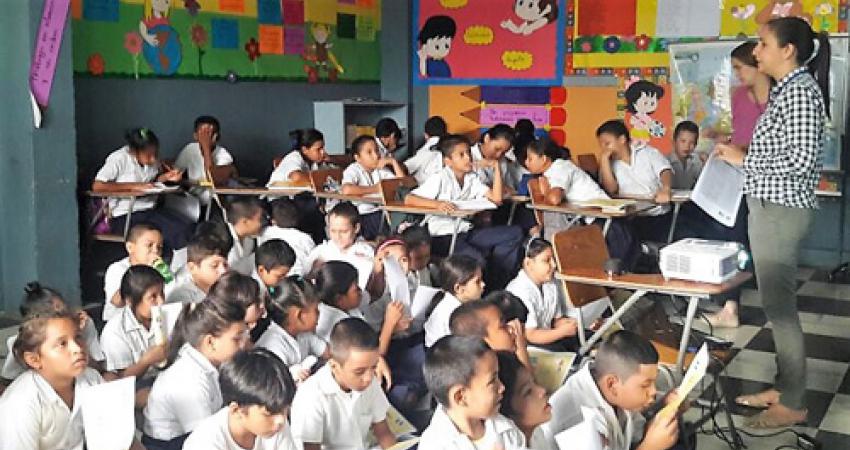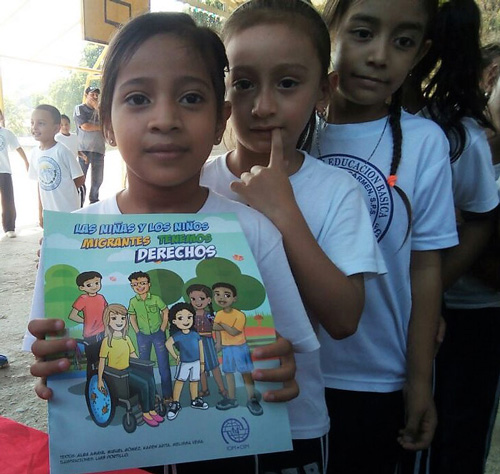Information Hubs Expand their Reach to Border Zone Schools and Institutions

There are now 10 information hubs operating in the Mesoamerican region with the support of the IOM, with one opening last month in Chinandega, Nicaragua. The Mesoamerica Program, together with the national and local authorities of each country, has established these posts in the border areas of Panama, Costa Rica, El Salvador, Honduras, Guatemala, Nicaragua and Mexico. They provided personalized information to about 2,000 vulnerable migrants in 2016 alone.

Information hubs give potential migrants information about the risks associated with irregular migration and and existing options for regular migration, as well as providing legal information about voluntary return. They are also information centers for residents of border area who come to enquire about their relatives in transit countries.
In the coming months the information hubs will also function as points where the MigrantApp –a smartphone application developed by the IOM that provides information on institutions where migrants can receive assistance or information, including information regarding regular and orderly migration and the risks associated with irregular migration – can be downloaded and details on it provided.
Key personnel of the information hubs are also deployed through mobile information brigades at crossing points, in remote communities, educational centers, churches, private companies and government institutions to raise awareness on and help prevent the risks of irregular migration. This helps take the functions of the hubs beyond their physical space.
To this end, the IOM supports staff with training processes. For example, in Guatemala, IOM organized a workshop in April 2017 for officials from different municipal offices who are in charge of the protection of children and adolescents, to strengthen their capacities to address migration related issues, as these offices are due to perform as information hubs on migration soon. And in Mexico, the staff of existing hubs met to analyze their functions and to review the Operational Manual that guides them in carrying out their activities.
The information hub in El Salvador organized information activities in three schools, reaching a total of 112 students from La Unión and Santa Rosa areas. Building on alliances with these schools and the InformArte en Movimiento campaign, a "Cultural Morning for Migrant Children and Adolescents" was also organized in La Unión, showcasing students´ artistic performances on the topic of migration.
In Honduras, the IOM collaborated with UNHCR and four state institutions in organizing an informational session in June, at the Pedro Nufio Educational Center in San Pedro Sula. The 144 participants learned about the risks of irregular migration, the availability of migrant care centers and the phenomenon of forced displacement that is currently affecting children and adolescents in the country.